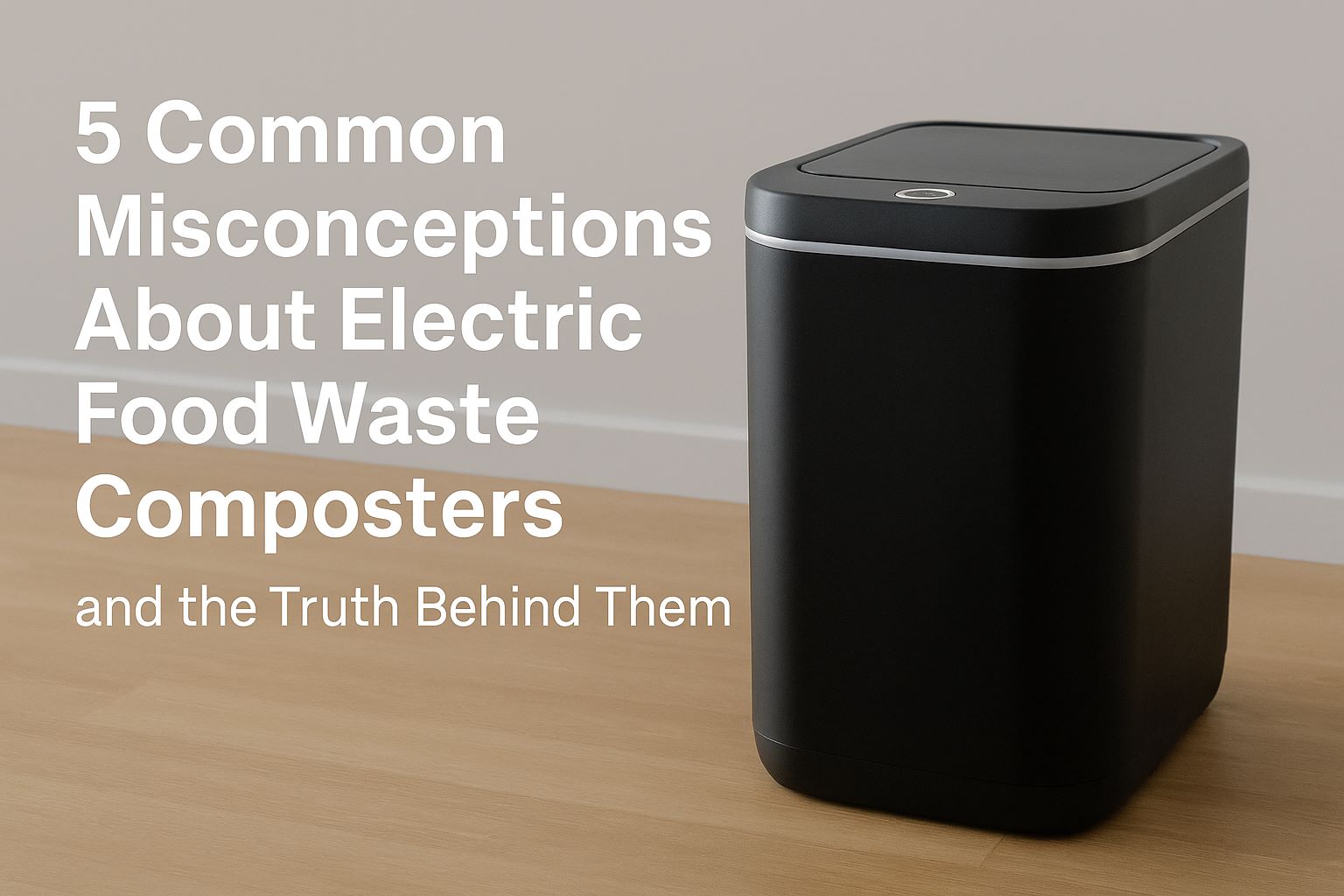Electric food waste composters have become increasingly popular for households and businesses looking to reduce waste and create nutrient-rich compost. However, despite their growing use, several misconceptions continue to surround these devices. Today, we’ll clear up five of the most common myths about electric composters and explain the truth behind them.
1. Myth: Electric Food Waste Composters Are Too Expensive
Many people assume that electric composters are an expensive investment. While initial costs might seem high compared to traditional composting methods, electric composters are designed to last for years with minimal maintenance. They are energy-efficient and save money by reducing waste disposal costs and providing high-quality compost for your garden or plants. Over time, they offer a great return on investment.
2. Myth: They Produce Only Small Amounts of Compost
Another common misconception is that electric composters can only handle small amounts of waste. In reality, modern electric food waste composters can handle large quantities of food scraps efficiently. Some models can process up to 5-8 pounds of food waste per day, making them suitable for both small households and larger families. The composting process is faster than traditional methods, turning scraps into compost in just a few hours or days.
3. Myth: Electric Composters Require Lots of Effort to Maintain
Many people believe that maintaining an electric composter requires a lot of effort. However, these devices are designed for ease of use. Most models are self-contained, meaning they don’t require turning or frequent attention. All you need to do is add food scraps, and the machine will automatically process them into compost. Some devices even have self-cleaning functions, making maintenance simple and hassle-free.
4. Myth: Electric Composters Are Bad for the Environment
Electric food waste composters are often wrongly considered environmentally harmful due to their use of electricity. However, they are a much more eco-friendly solution than traditional waste disposal methods. By reducing food waste sent to landfills, these devices significantly decrease methane emissions, a potent greenhouse gas. Additionally, they reduce the need for chemical fertilizers, promoting organic gardening and sustainable practices.
5. Myth: Electric Composters Are Only for Gardeners
While it’s true that electric composters are great for gardeners, their benefits extend far beyond that. Compost is a valuable resource for enriching soil, but even those without a garden can benefit from using an electric food waste composter. The compost can be donated to community gardens, used to fertilize indoor plants, or even given away to neighbors and local businesses. Electric composters are versatile, making them suitable for a wide range of users.

The Truth About Electric Food Waste Composters
Electric food waste composters are more than just a trend. They offer a convenient, fast, and eco-friendly solution to managing food scraps. With the ability to process large amounts of waste, provide high-quality compost, and reduce environmental impact, they’re an excellent choice for anyone looking to live more sustainably. Don’t let misconceptions hold you back from making a positive change for both your home and the planet.
At Goldhot, we offer high-quality electric food waste composters designed to fit a variety of needs. Whether you’re looking to compost for your garden or reduce your waste footprint, we’ve got a solution for you. Explore our range of products today!







